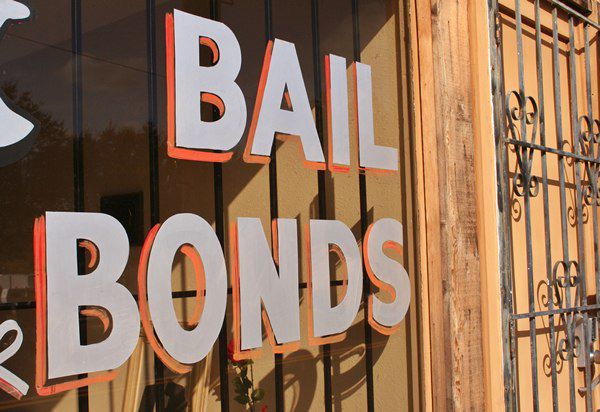Once a person is in police custody and is charged with an alleged offense, he or she may be able to get out of jail by posting bail or obtaining a bond. A judge determines the amount of bail based on factors like the severity of the alleged offense, the likelihood that the defendant will commit additional crimes after being released, and the chances that the defendant will flee the jurisdiction before trial. A judge may set bail at any amount that is not objectively unreasonable or deny bail altogether. The Eighth Amendment to the U.S. Constitution prohibits “excessive bail” but does not state that courts are required to allow bail.

Bail vs. Bond
The words “bail” and “bond” are often used almost interchangeably when discussing jail release, and while they are closely related to each other, they are not the same thing. Bail is the money a defendant must pay in order to get out of jail. A bond is posted on a defendant’s behalf, usually by a bail bond company, to secure his or her release.
Bail is not intended as a punishment in itself. It is rather a way of securing a defendant’s agreement to abide by certain conditions and return to court. In that sense, bail is like collateral left with the court to ensure that, after the defendant’s release from jail, he or she will return for the remaining parts of the criminal case. If the defendant fails to appear or violates the conditions of the release, he or she might forfeit the amount paid. If the defendant posted a bond, the bail bond company forfeits the money, as discussed below.
Bail Hearing
After a person’s arrest, a judge or other court officer will set the amount of bail, along with any other conditions for his or her release from jail. Factors to consider that could weigh against bail include flight risk and risk to the public of further criminal activity. Factors that might be favorable to granting bail include a lack of prior criminal history and ties to the community. Possible rulings in a bail hearing include:
Release on Own Recognizance: The defendant is released from jail in exchange for signing an agreement promising to return to court and abide by other conditions.
Personal Bond: The defendant is released upon signing a bond, which states that he or she will be liable for criminal, and in some cases civil, penalties if he or she fails to appear in court.
Bail Set with Terms of Release: The defendant may go free by posting bail in the amount set by the court, either by paying it directly or obtaining a surety bond through a bail bond company.
Denial of Bail: The defendant is deemed too much of a flight risk or a risk to the public.
Bail Bond Companies
Bail is often set in amounts that are beyond the financial capabilities of most people. Bail bond companies are, in most states, for-profit businesses that charge a nonrefundable fee, usually 10 to 20 percent of the bail amount, to post bail for a defendant.
The bail bond company signs a contract, known as a surety bond, in which it agrees to be liable for the full bail amount if the defendant fails to appear in court or otherwise forfeits his or her bail. Since the bail bond company is potentially on the hook for a large sum of money, it may require the defendant to check in on a regular basis, or even consent to be monitored by the company. The next step for a bail bond company, if the defendant fails to appear in court, might be to retain the services of a bail recovery agent, sometimes known as a bounty hunter.